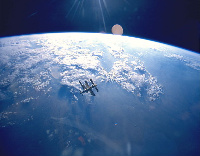Sustainability — Perceived By Most as “Nice To Have”

We’ve come to think of sustainability as a “nice to have,” rather than a “must have” feature in our lives. Perhaps that’s because the very notion has long-term consequences, as compared to, say, the diminution of our retirement funds, the threat of job loss, or any of the pressing matters that occupy our immediate attention.
When it comes to sustainability, we are prepared to say, “Hey, I have problems right now. I can’t really be expected to worry about what life might be like 100 years hence,” or, “Things can get a bit out of balance in the biosphere, but as long as they come back around in the long-term, everything will be just fine.” And of course, all this is amplified further by this refrain, which is somehow gaining ground rapidly over the past few months: “Human activity is not – and can never be – the cause of any damage to the natural world.” Huh? Weren’t we a whole lot more enlightened on this point about 40 years ago?
In any case, I think of these acts of burying our collective heads in the sand simply as examples of the fact that our civilization simply cannot react to more crises in our lives. We’re overloaded; we’ve shut down.
That’s sad – and potentially, lethally so. Check out this report, and learn how a growing, more affluent population competing for ever scarcer resources could make for an “unrecognizable” world by 2050, researchers warned at a major US science conference Sunday.

